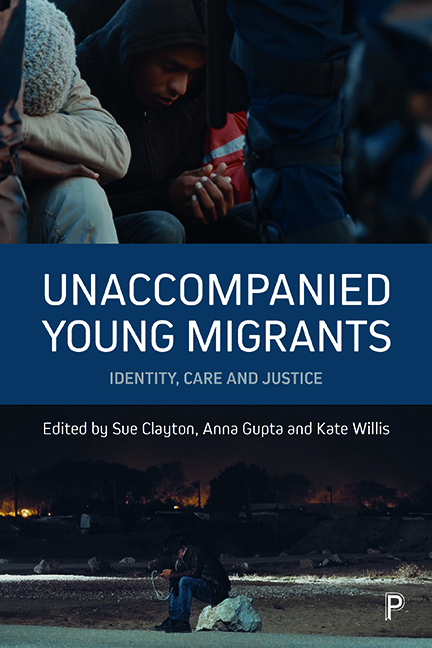two - Dilemmas and conflicts in the legal system
Published online by Cambridge University Press: 21 April 2022
Summary
Introduction
The unaccompanied child seeking asylum occupies an ambiguous space in political and legal discourses. The discourse of childhood often presents them as vulnerable victims of circumstances beyond their control, devoid of agency. On the other hand, in discourses around asylum and migration, terms such as ‘illegal migrant’ construct them as manipulative, potentially dangerous – the unknown and threatening ‘other’. As soon as they arrive in the UK, young asylum seekers find themselves caught between two domains of law that mirror those contrasting political discourses: the protective framework of care law provided by the Children Act 1989 and motivated by the principle of the child's welfare being paramount – ‘Every Child Matters’ – and the punitive framework of numerous Immigration Acts dominated by the call for ‘Securing our Borders: Controlling Migration’ (UK Border Agency, 2010). It is the latter that has shaped the legal framework governing determination of young people's asylum claims.
It has long been recognised that child asylum seekers are a particularly vulnerable sub-section of an already vulnerable population. Yet despite this recognition, child asylum seekers coming to the UK face particular obstacles in making their claims for asylum. This chapter will explore the recent developments in the UK's approach to children seeking asylum. This chapter will consider how the asylum system has in many cases failed to provide durable solutions for child refugees. It will question why, despite well-written guidelines and public awareness of the specific protection needs of children from conflict zones, the success rate for child asylum claims is often lower than for adults from the same country. It will then consider the legal obstacles that young asylum seekers face and the complexities of the system they are forced to navigate.
This chapter opens with a comparison between law in theory and law in practice as it applies to young asylum seekers. We highlight specific problematic issues: assessing credibility, the provision of legal aid, and delay in decision making. Two case studies then illustrate the uncertain journeys through the legal process faced by two of the largest groups of asylum-seeking young people: Afghans and Eritreans.
The law in theory
UK asylum law and guidance provide a number of protective measures for young asylum seekers.
- Type
- Chapter
- Information
- Unaccompanied Young MigrantsIdentity, Care and Justice, pp. 39 - 76Publisher: Bristol University PressPrint publication year: 2019



